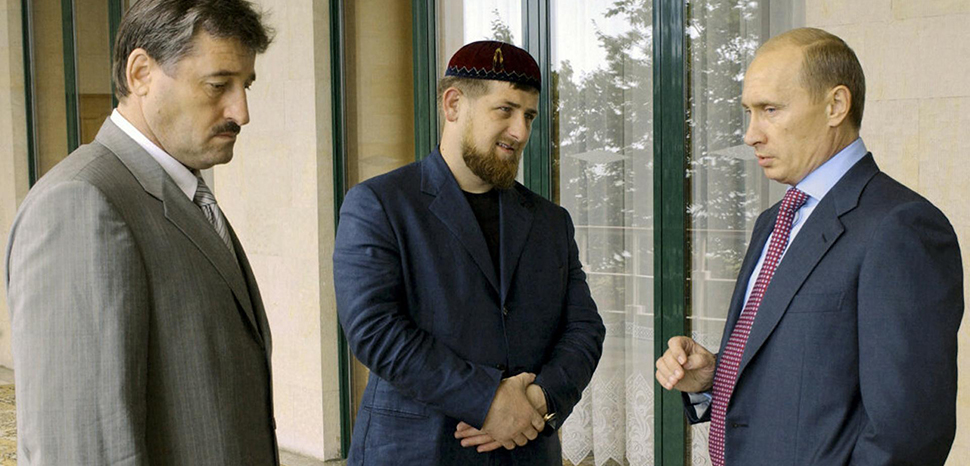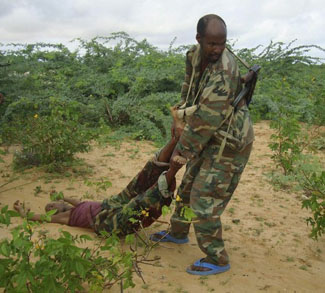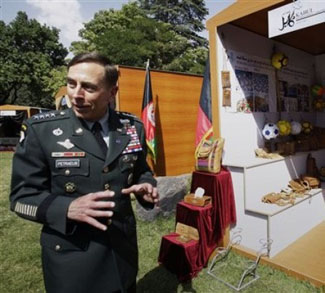The Kadyrovs are a political dynasty in Chechnya. The first generation, Akhmad Kadyrov, supported Moscow during the Chechen War and helped secure control of the region. The second generation Kadyrov, Ramzan, leads Chechnya now has benefitted from remaining loyal to the Moscow government, expanding his personal power greatly. During the war in Ukraine, he also sent troops to fight on the frontline and actively commented on course of the war.
However, rumors concerning Kadyrov’s health have been a consistent feature of late. Earlier on, the rumors claimed Kadyrov had suffered from kidney failure. More recently, reports suggest that Kadyrov was suffering from pancreatic necrosis in 2019, and his condition has worsened in the meantime. While Kadyrov released a clip of him exercising to divert public attention, speculation concerning his health is still rife.
Yet whether Kadyrov is healthy or not, one thing is sure: Chechnya will remain stable, even in a post-Ramzan Kadyrov situation. The stronger-than-expectation control of Moscow, Kadyrov’s dynastic strength, and the lack of sufficient opposition inside Chechnya will combine to sustain the status quo.
Moscow’s Iron Grip on Chechnya
Many have argued that the Moscow government has already lost de facto control over Chechnya, as Kadyrov’s force is independent from Moscow’s command. Moscow also handed over control of the Chechen oil company to the Chechen government, granting a strong boost in direct financial resources. Furthermore, Chechnya’s history of friction with Russia and Kadyrov’s blunt criticisms surrounding the Ukraine war could be interpreted as potential drift away from Moscow.
However, in reality, Moscow retains tight control over Chechnya in other ways. Economically and politically, the current regional authority can only survive with Moscow’s continued support.
Moscow indeed granted a degree of economic independence to the Chechen government. Yet, Chechnya relies on Russian transfer payment to survive. Russian subsidies comprised 87% of the Chechen annual budget, and these payments survived the federal funding cut of 2017. Even Kadyrov has recognized that Chechnya would not survive without Moscow’s fiscal support, as Moscow provides around $3.8 billion dollars a year to the Grozny government. Chechnya continues to suffer from extremely high unemployment while building massive mosques and modern business districts. Only Moscow’s cash can sustain this deformed economy.
The Kremlin also keeps its eye on the political arena in Chechnya, and Putin has indicated a willingness to tip the scales on the next Chechen leader. This could end up being someone other than the heirs of the Kadyrov dynasty, whom Russian propaganda has consistently promoted. Moscow has recently appointed Apti Alaudinov, Kadyrov’s right-hand man, as director of military-political work at the Russian Ministry of Defense. The promotion generated some speculation about Alaudinov’s succession to the Chechen government. The news also reinforces the fact that Moscow has the ability to install any Chechen leader it wishes, further reinforcing Moscow’s iron grip over the region.
The Kadyrov Dynasty
Kadyrov and his relatives have obtained great political trust in Moscow. Over the past 25 years, Kadyrov managed to build a dynastic rule in Chechnya, and one way or another this dynasty will play a key role in maintaining Chechnya’s stability after Ramzan Kadyrov.
Some reports indicated that more than half of the critical positions inside the Chechen government are held by relatives of Ramzan Kadyrov or members of his village. Besides politics and the military, the Kadyrov family also makes massive profits in Chechnya. For example, in 2015 it was claimed that Kadyrov and his family imposed an unofficial tax upon Chechens. The French dairy company Danone also has plans to sell its Russia operations to a management team directly linked with the Kadyrov family.
Meanwhile, Kadyrov still shares the same interests as the Moscow government. As previously mentioned, Moscow has the ability to control Chechnya in various ways. Kadyrov’s family has gained massive economic and political privileges under the current system. It’s obvious that Kadyrovs are thriving under Moscow’s goodwill; thus, there is no practical reason for the family to challenge Moscow’s authority.
Ramzan Kadyrov is also preparing for the next generation to take over. Kadyrov’s elder son, Akhmad Kadyrov, has met with Putin. Although it was an unofficial meeting, the move seems a clear indication that Kadyrov intends to secure his son’s position in future Chechen politics. Meanwhile, other close relatives control key positions in the Chechen government. Kadyrov’s son, Adam, heads the security department, and his daughter, Aisha, serves as the deputy prime minister of Chechnya. The next generation is now already playing a role in Chechen politics.
The Lack of Credible Opposition
Practically speaking, there is no real opposition that’s able to challenge Kadyrov. Political opponents in Chechnya are very divided over ideological differences. From liberals to extreme Islamists, there’s no common ground to work together, allowing the Chechen government to divide and conquer.
On top of this, the opposition movement has shrunk significantly. The Chechen and Moscow governments have cracked down on the region’s armed resistance activities. Some groups, like the Caucasus Emirate, have stopped their activities entirely. Similar to the remnants of the Chechen Republic of Ichkeria, the other groups are more active outside of Chechnya and Russia. Even in a post-Kadyrov world, these groups lack the means and resources to become involved in Chechnya.
Meanwhile, the violent nature of the Chechen regime has made dissidents either hide their presence or seek refuge outside of Chechnya. A Chechen opposition YouTuber living in Stockholm has had to fake his death to avoid assassination attempts. Meanwhile, the Grozny government also targets the family members of Chechnya activists. Even recently, Kadyrov called for blood vengeance against the relatives of wanted fugitives.
Looking Forward
Indeed, Chechnya has shown a tendency toward independence throughout the years. The region has experienced historical frictions with the Russian government; Kadyrov’s Army and its expansion challenged Moscow’s military control; and economic independence creates drift in the Moscow-Grozny relationship.
Yet one thing remains for sure: even if Kadyrov is no more, his family and right-hand men will still play essential roles in Chechen politics. The autonomous republic will not break away from Russia. Moscow remains in strong control of the region, and Chechnya lacks any opposition that can truly threaten the status of the Kadyrov dynasty.
The views expressed in this article belong to the author(s) alone and do not necessarily reflect those of Geopoliticalmonitor.com.




